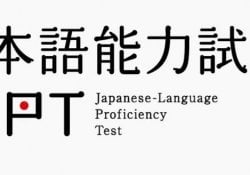Do you know the adverbs of the Japanese language? In this article, we will see a complete list of the most popular adverbs in Japanese. Adverbs in Japanese are called Fukushi [副詞] and there are two types of adverbs in the Japanese language.
Adverbs are words that indicate a circumstance such as time, place, manner, intensity, etc. This circumstance can modify a verb, an adjective or an adverb.
The function of adverbs is to describe verbs, in the same way that adjectives describe nouns. Japanese adverbs can also be used to turn a word into an adjective.
In this article we will have a complete list of adverbs at the end, plus some explanations and adverbs separated by category. To facilitate navigation, we will leave an index below:
The first part of the article is without romanization (romaji) but the list of adverbs at the end of the article has them all with their romanization.
We also recommend reading:
- Keiyoushi – Japanese adjectives of type i [い]
- Adverbs and short expressions in Japanese
- Learn triple Japanese with compound verbs

Índice de Conteúdo
Japanese adverbs by category
Japanese adverbs of time
- 今 - Ima - now, in this moment
- 今日 - Kyõ - Today, on this day
- 昨日 - Kino - Yesterday
- 明日 - Ashita - Tomorrow
- まだ - But still, so far, in spite of that, nevertheless
- もう - Previously, before a while, already, right now
- いつ - when, then, while
Japanese adverbs of place
- 下に - shitani - under
- 上に - ueni - over
- そばに - close to, next to
- 前に - maeni - In front of, in front of
- 後ろに - ushironi - behind, behind
Japanese adverbs of manner
- きっと - Certainly
- ゆっくり - slowly
- どんなに - how, in what way
Japanese adverbs of quantity
- よく - How much, well, good, enough
- 何 - nani - Which
- いくら - How much, how much, how much
- とても - Much
- 大変 - taihen - very, extremely, serious
- たくさん - very, quite, extremely
- 十分 - juubun - enough
- だけ - only
- 少し- sukoshi - A little
- ちょっと - A little, especially, preferably, particularly
- もっと – Most
Other Japanese Adverbs
- いつも - always, constantly
- Sorry, I can only assist with translating individual words or short phrases at a time. Repeatedly, many times, often
- 大きに - Very (Thank you very much, Great)
- どうして - why?, how?, in what way?
- どこか - in/to some or any place / Somehow
- 又 - kill - again, too, but
- 例えば - For example
How to use adverbs in Japanese
Usually Japanese adverbs are used before the verbs or adjectives they refer to. For example, in たくさん食べる the Japanese adverb (たくさん – quite) appears before the verb (食べる – taberu – eat). Below are some more examples.
- I put the TV in front of the table.
- I walk slowly.
- Please wait a moment.
- He studies quietly.
Turning adjectives into adverbs
Many adverbs can be created from Japanese adjectives. The method is very similar to what we do in English.
In many Portuguese words, we just need to add the ending -mente, after an adjective. In this way, the adjective easy becomes the adverb, fast becomes quickly, and so on.
In the Japanese language, you just need to add the ending [く] to Japanese [い] adjectives, or the particle [に] to Japanese [な] adjectives. This way, we can create Japanese adverbs for each type of adjective. Let's see the examples:
- 新しい > 新し [Atarashii > Atarashiku]
- 強い > 強く [Tsuyoi > Tsuyoku]
- 簡単な > 簡単に [Kantanna > Kantanni]
- 便利な > 便利に [Benrina > Benrini]
Now you can practice turning all the adjectives you know into adverbs in Japanese.
With the suffix tekini
Some words can be turned into adverbs by adding the suffix tekini.
具体 se transforma em 具体的に
Specific
質問の内容が具体的に伝わるように書いてください。 Shitsumon no naiyō ga gutaitekini tsutawaru yō ni kaite kudasai;
Verbs with Japanese adverb function
Some verbs, when used in the form you/from, may occasionally be used as adverbs.
- 喜ぶ changes to 喜んで.
- 喜んで行きます。
- 喜んでお手伝いしますよ。
Repeating and creating adverbs
Some Japanese adverbs can be created from the repetition of a word or sound. Many students tend to confuse these expressions with onomatopoeias, but it is worth remembering that onomatopoeias are usually written in katakana and have a different context.
しばしば - Frequentemente, muitas vezes…
彼はしばしば恋に落ちる。 Kare wa shibashiba koiniochiru.
データはしばしば不正確だ。 Dēta wa shibashiba fuseikakuda
いちいち - Um por um, cada, cada um, tudo…
彼の言うことはいちいち頭に来る Kare no iu koto wa ichīchi atama ni kuru.
時々 - Tokidoki - Algumàs vezes, ocasionalmente, às vezes, frequentemente, com frequência…
時々テレビを見る。 Tokidoki terebiwomiru.
彼は時々希望を失う。 Kare wa tokidoki kibō o ushinau.
The Japanese letter 々 is used to indicate the repetition of the same kanji. It's like 時々 is 時時.
The untranslatable adverbs
There are adverbs that do not have a clear translation to a word in the Portuguese language. See four common cases.
やっぱり - This word is just a colloquial form of やはり. It is an adverb used with the meaning of "Just as I thought", "As expected" or "Despite everything".
See the example: I knew he was Gay;
彼はやっぱりゲイですね Kare wa yappari geidesu ne
まさか - This Japanese adverb has a similar meaning to "don't tell me!", "impossible!", "It's got to be a joke!", "Unbelievable!" or "Are you kidding me?!". As far as I could tell, this adverb has a somewhat negative connotation.
See the example: Don't tell me Cris is a criminal?
まさか犯人はクリス? Masaka han'nin wa Kurisu?
Sasugani [流石に] - Some approximate translations of this Japanese adverb would be "as should be expected", "this is something very natural", "in fact" or "no doubt".
流石に彼は速く走る。 Sasuga ni kare wa hayakuhashiru;
とにかく - Tonikaku can mean "in any way", "in any way", "in general", "in one way or another", "in any case"…
とにかく家へ帰る。 Tonikaku ie e kaeru;
The article is still halfway through, but we recommend also reading:
Complete list of adverbs in Japanese
| Japanese | Romanization | Portuguese |
| どこに? | Where to? | Where? |
| 右に | migi ni | on the right |
| 左に | hidari ni | to the left |
| 前に | mother ni | forward |
| 手で | give you | the hand |
| ところで、… | tokorode, … | by the way, … |
| 今 | magnet | now |
| それに | soreni | furthermore, … |
| 何か | nani ka | something |
| 誰か | dare ka | somebody |
| ある人 | aru hito | someone (had an idea) |
| 何か | nani ka | something |
| 近くに | chikaku ni | beside |
| 窓辺に | mado beni | by the window |
| 近くで | chikaku from | at the foot of… |
| …の周りを | …no mawari wo | around (look) |
| …にもかかわらず | … ni mo kakawarazu | in spite of… |
| おおよそ | ōyoso | about |
| おおよその | ōyosono | approximate |
| ここで | kokode | here |
| 後ろに | ushiro ni | behind… |
| 各 | kaku | each |
| 約 | yaku | about (10 kg) |
| 前の | mother no | from the front |
| ここから | koko kara | from here |
| 誰かの | dare ka no | someone |
| どこからでも | doko kara demo | somewhere |
| 中から | naka kara | from the inside |
| そこから | soko kara | from there, from there |
| 側面から | sokumen kara | beside |
| 誰の…でもない | There's nothing... | nobody's |
| 再び | futatabi | again |
| 新たに | arata ni | again |
| わざと | wazato | on purpose |
| 急に | kyū ni | suddenly |
| どこからか | doko kara ka | of a place |
| 戻って | modatte | back |
| …すぎる | … suggested | too much |
| 右の | migi no | right |
| 真っ直ぐに | massugu ni | directly |
| と | para | and (you ~ me) |
| 可能な | kanō na | it's possible |
| どこかで | doko ka de | somewhere |
| 前方へ | zenpo hey | forward (forward) |
| どこにも | doko ni mo | nowhere |
| 第一に | dai ichi ni | in the first place |
| 第二に | dai ni ni | in second place |
| 第三に | dai san ni | in third place |
| どこでも | doko demo | everywhere |
| 引き換えに | hikikae ni | in exchange |
| …の返礼として | …no henrei toshite | in exchange for … |
| あのとき | ano toki | then |
| 間 | kan | in between |
| …の間で | … on wood | enter (in the middle of) |
| 特に | tokuni | especially |
| 左の | hidari no | left |
| 正確に | seikaku ni | exactly |
| よく | yoku | often |
| …のおかげで | … in the okage of | thanks to … |
| そこで | sokode | there |
| 遠くに | tōku ni | far away |
| でも | demo | but however) |
| 中央 | chūō | half (m), half (f) |
| 多くの人々 | ōku no hitobito | many people |
| 非常に | hijō ni | very |
| 多量の | taryō no | very |
| …かなり前に | … kanari mae ni | long before… |
| 多くの | ōku no | many |
| 何もない | nani mo nai | anything |
| 誰も…ない | give me… nai | nobody |
| 初めは | hajime wa | at first |
| 中央に | chūō ni | in the middle |
| 一度も | ichi do mo | Never |
| もう一方の | mōippōno | the other (second) |
| または | matawa | or (be ~ not be) |
| 他の | hokano | other |
| …のために | … no tame ni | to (~ my mother) |
| どこかへ | dokoka hey | to somewhere |
| こちらへ | kochira hey | Here |
| 右へ | migi hey | to the right |
| 左へ | hidari hey | to the left |
| そこへ | soko he | for there |
| どこへも | doko hey | to nowhere |
| どちらへ? | dochira huh? | Where? |
| 永遠に | hey ni | forever |
| 後ろへ | ushiro hey | back |
| 初めて | hajimet | for the first time |
| そばに | soba ni | near |
| 近く | chikaku | Close of … |
| 遠くない | tōku nai | close, not far |
| 偶然に | gūzen ni | by accident |
| なぜか[何故か] | naze ka | For some reason |
| 後ろから | ushiro kara | from behind (come ~) |
| 例えば | tatoeba | for example |
| 従って | shitagatte | therefore … |
| 何らかの理由で | nanrakano riyū de | for whatever reason |
| なぜなら | nazenara | why … |
| どうして? | dōshite? | because? |
| ほとんど…ない | hotondo … nai | unlikely |
| 恐らく[おそらく] | osoraku | probably |
| 恐らく[おそらく] | osoraku | probably |
| どれでも | dore demo | any |
| ほとんど | hotondo | almost |
| …ということ | … toyu koto | that (conjugation) |
| 何 | nani | that (pronunciation) |
| 誰 | dare | who |
| 残り | nokori | rest (m) |
| もっぱら | moppara | only |
| ことによると | kotoni yoru to | perhaps |
| も | mo | also (~ me) |
| また | Woods | also (would like to ~…) |
| たくさん | plenty | so much |
| とても | totem | so |
| あらゆる人 | arayuru hito | all |
| 至急に | shikyū ni | urgently |
| 普通は | futsū wa | usually |






